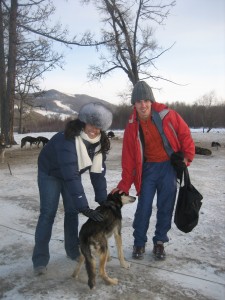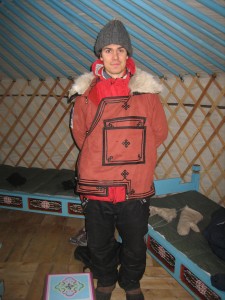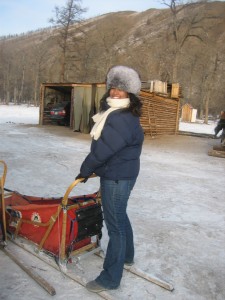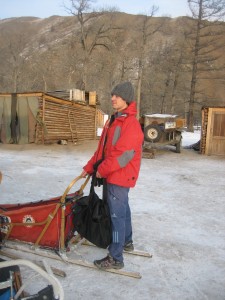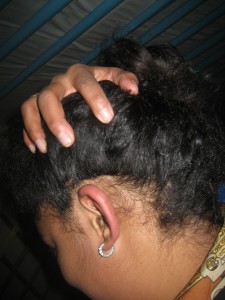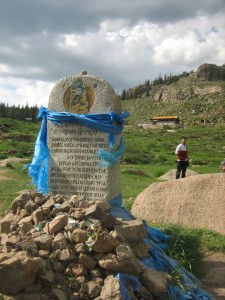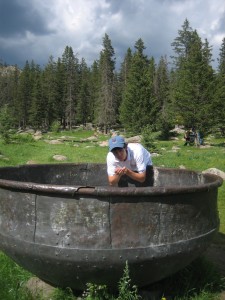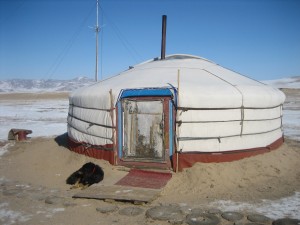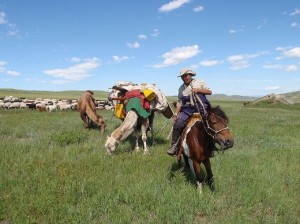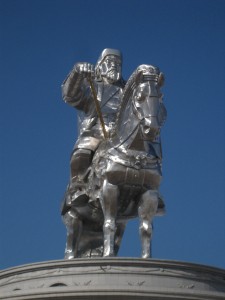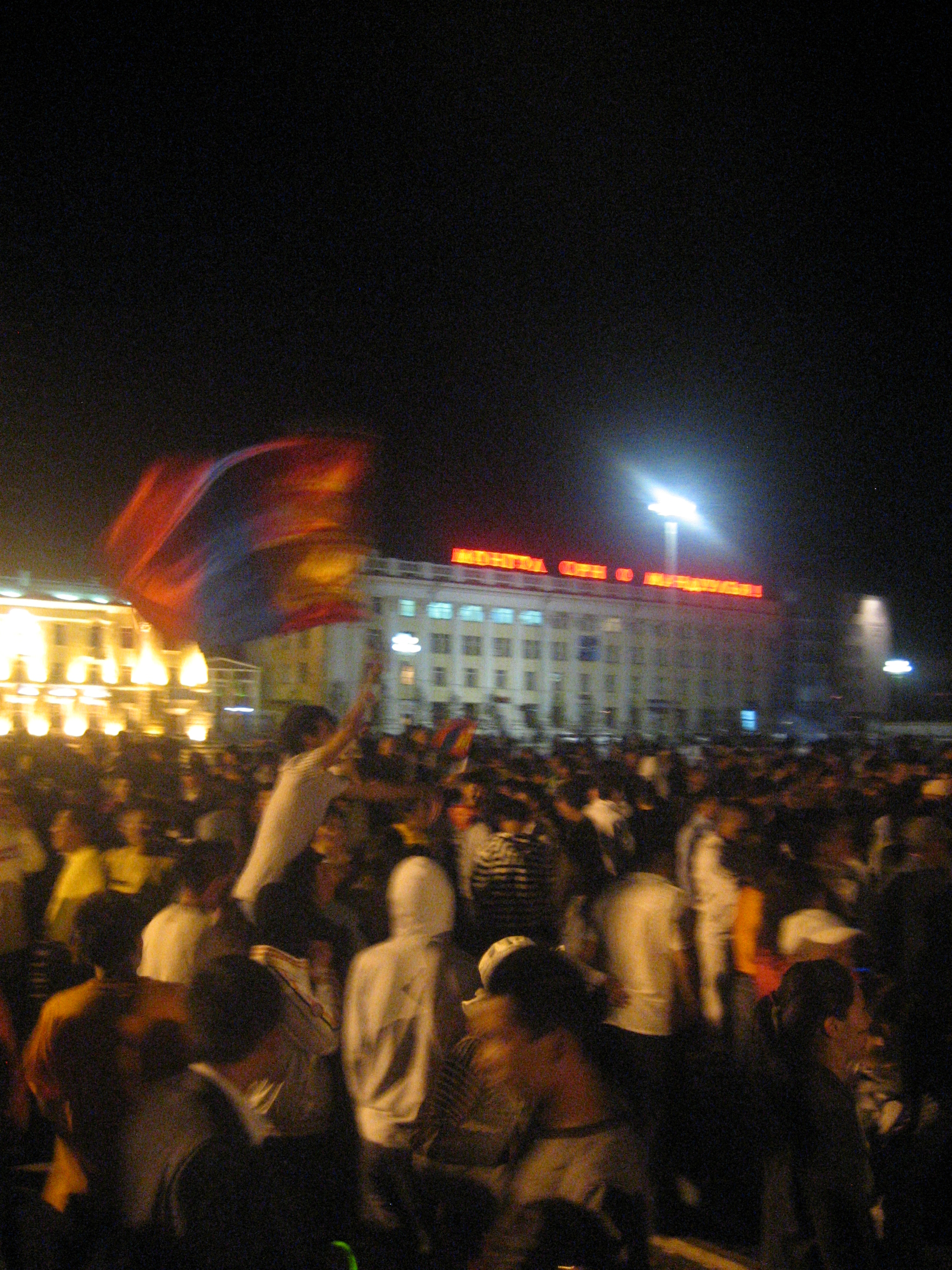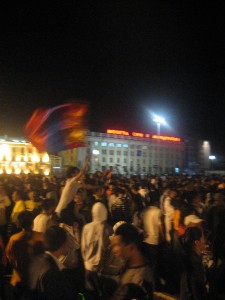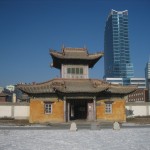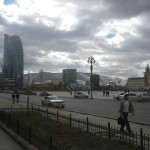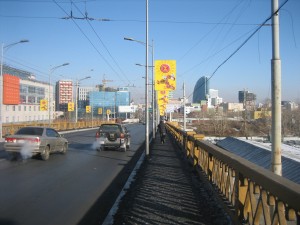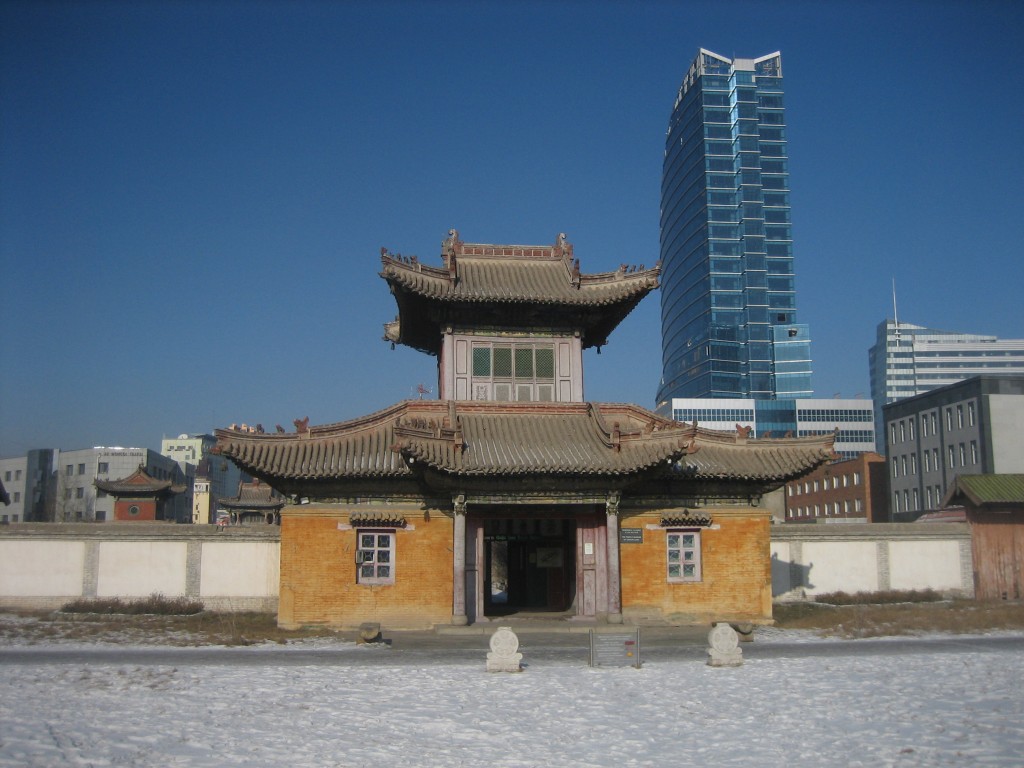I survived Dog Sledding in Mongolia
~ OR ~
…How to put what’s left of a good face on travel adversity
“So I went to the doctors,” Bijani said.
“Oh good, what did they say?” The phone-line went quiet for a few seconds.
“Well, that I’d probably lose my big toe and parts of both ears.”
“What?!”
“Yeah, they’re pretty black and peely right now. You know marshmallows, after they’ve been on fire? Kinda like that.”
“Oh—that’s bad! Did you get a second opinion?”
“I think it’ll be ok,” Bijani laughed. “They found a doctor who’d lived in Alaska, and he says as long as everything stays warm I get to keep my nose, earlobes—all that good stuff.”
“… Does your mom know?”
“No—but she’ll kill you when she finds out.”
***
I’m a thoughtful dude: I do dishes; I put the toilet seat down at night; onetime I read the Little Prince and told people I liked it. So, never, in a million years, did I imagine this could happen to me.
Even Bijani’s mom’s parting words didn’t offer a hint. “Mongolia’s not the world’s safest place,” she said. “Don’t let ANYTHING happen to my beautiful daughter.” Frostbite would surely count as a kind of “anything”—and on her second-to-last-day, all because I’d agreed to have “fun” against my better judgment.
Oh, we’d had fun before—my kind of fun—the kind that involves working long hours at a newspaper office and watching Singapore-based sports TV in an apartment. But given her imminent return to California, I couldn’t say no. For our last, most memorable adventure in the land of Genghis Khan, Bijani chose dog sledding.
“At least the dogs were cute,” Bijani said.
“Oh yeah, great.”
“And I liked Noel.”
“That crazy French guy? He’s insane—case of permanent brain freeze.”
“Look on the bright side…”
“Easy for you to say. You just got frostbite. I’m going to be murdered by your mother.”
“Well…”
“Aghhhhh. How did this happen?”
***
It started with us setting off for sledding on one of those unusually mild, Mongolian January days. It was zero degrees. For the first time in three months I felt overdressed in long underwear, snowpants, gloves, and two jackets. One small victory in the battle of Man vs. cold.
The Silver Storm company van drove us out of Ulaanbaatar city northeast toward Terelj National Park, while I sweated past wrecked cars that served as “don’t drink and drive” reminders, through stiff yellow hills and finally the famous rock that looks like a turtle happily sunning itself.
We arrived and I couldn’t help feeling a little optimistic about the expedition. Three felt tents beside a log shed made up the camp, where lean, eager huskies and the bemused voice of Noel, our energetic guide, greeted us.
“Is zees all you brought?” he prodded our clothes dubiously and left, returning a few moments later with massive, traditionally-pattered wool jackets and pants.
“Now you will not freeze,” he said.
It was colder by the banks of Terelj River than in the city, but I felt impenetrable in my woolen armor. Noel wore a jacket, ski-pants and a fleecy headband. I figured we were being treated with big, woolen, kiddie mittens.
We met Black and White, the skinny lead dogs, and learned the essentials—hold on, lean left to turn left, right to turn right. And that was it—we mounted our wooden sleds and plunged down a powdered ice ramp onto the hard river.
The stony riverside and lines of crisp alpines whipped by at seven miles per hour. Black looked over his shoulder as if to say: “Isn’t this fun?” It was fun, for five minutes.
Then I felt something else. Pain.
Freezing pain.
***
“Remember how the wind cut through seams in your clothes and your boots?” Bijani asked?
“Oh yeah, but how’d it get through both pairs of socks?”
“Weird, huh?”
“You should’ve said something; we’d have gone back.”
“I just couldn’t make myself do it, but I wanted to turn around so badly,” she said.
“I wanted to cry, but my tear ducts froze.”
***
At some point, we stopped for a third time. Bijani started with a neat fur hat and scarf wrapped around her face. Now frost caked her eyebrows and yellowing scarf; the hat was long gone, blown off and replaced by my lopsided wool cap. She looked like the disconsolate runner up of Miss Abominable Snowwoman 2008.
I should have given her my balaclava, but it was too cold to really be considerate.
“Should we keep going?” I asked.
I wanted her to say no. She opened her mouth and nothing came of it, just a headshake. (Later she’d tell me her brain had lobbied for a nod, but some frozen synapses misfired).
“Only 15 kilometers to go!” Noel said.
I knew we would die. Black glanced over his shoulder again, and I saw resignation on his face. “Yes, you are going to die,” his look said. “And if no one’s looking, I’ll probably eat you. No hard feelings, though.”
The wind howled. We crossed more frozen water. Sometimes it made cracking noises and we could see the water running under our feet. Sometimes rocks or debris formed a line across the icy track and we had to get off and run behind the sleds. I cursed nature. Bijani fell. She fell again.
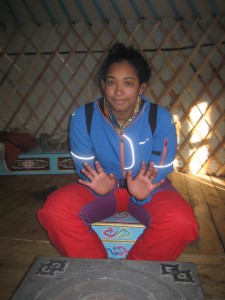 She looked at me and I’ve never seen a face I know registering that much pain.
She looked at me and I’ve never seen a face I know registering that much pain.
At last we reached the halfway point, a river bend that provided some shelter from the wind. Noel lit a fire and heated mutton dumplings and tea. I thought it was the best meal I’d ever eaten.
“At least we won’t die hungry,” Bijani said.
Miraculously, the wind at our back made the homeward journey easy. Bijani got a lift in Noel’s sled. I laughed the whole way to camp, partly from relief, partly from borderline hysteria that made me careless with the reins a few times. Black peeked at me, looking concerned and a little disappointed. He licked his lips.
Once inside a safe felt tent with a dung fire going, we took off our huge coats and pants and took stock of our situation. Bijani removed her hat.
“My ears feel funny,” she said.
They were humongous. The backs had bubbled into deep purple blisters.
“Is this going to be ok?” I asked Noel.
“Oh that,’ he laughed. “That iz just from the cold. The elephant ears. You feel just like an elephant because ze are so…”
“Floppy?” Bijani offered
“Floppy!” He made wiggly elephant ear motions with his hands.
“Will she be ok?”
“But it iz nuffing. It’s happened to me at least five times.”
Noel’s headband remained conspicuously over his ears for our entire visit. We drove back in the dusk. Against the frozen brown backdrop that signature rock looked like a turtle trying to squeeze out of its shell and run, run for the hills, far away from its angry, future mother-in-law.
Things looked even worse when we got home and Bijani took her shoes off. The big toe on her right foot was black. I spent the evening breathing on her feet trying to keep them warm.
“This is just the romantic last evening I wanted,” Bijani said.
We got advice ranging from ‘put the affected areas in snow’ to ‘pray,’ to ‘everything will be fine.’ The next day, Bijani left for California with burn traces clearly showing on her face. She called me 20 hours later.
“So you’ll really be ok,” I asked.
“I think so.”
“I am so sorry. What a perfect end to a perfect stay, huh?”
“You know, I actually had a lot of fun.”
“Really?”
“Ha ha ha. Of course, didn’t you?”
“Except that it was the most awful, difficult, painful experience of my life, yeah, I guess I did.”
“Good. Plus we have a great story and I’ll have cool scars to prove it.”
“That’s what I’m afraid of.”
“It won’t be so bad. They won’t last more than a few months. Speaking of which, when are you coming home?”
“Dunno, after your mom has cooled down for a year or two… “ There was another silence on the line. “So, where to next? Somewhere really nice like Iceland, Antarctica, the frozen void of space …?
“Don’t get any ideas, buddy. I’m taking you somewhere warm.”
~Will~
For more on Will’s escapades in Mongolia, check out these additional EY articles:
and coming soon: TAJ MONGOLIA
Some say adversity is the fuel on which true love feeds…it certainly seems true for Will & Bijani who continue to surprise, delight & inspire us at every turn! Read more about their engaging love story here.



